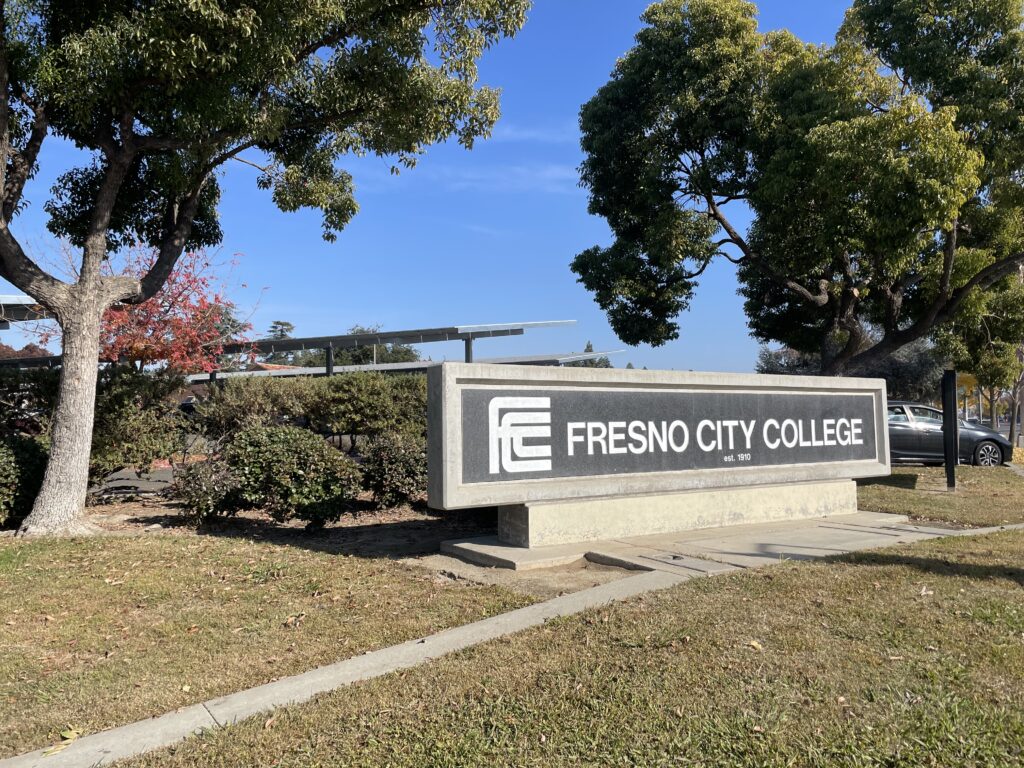
Credit: Alison Yin / EdSource
This week, Gov. Gavin Newsom presented the first pass on the 2024-25 state budget.
It includes his ideas for addressing an $11 billion drop in funding for TK-12 and community colleges and a larger projected general fund deficit affecting child care and higher education.
We asked a cross-section of education leaders and advocates for their initial impressions of the governor’s proposals.
Their contributions reflect diverse perspectives on education, from preschool through CSU and UC.
What follows are excerpts of conversations and public statements. We will seek other voices as budget negotiations between Newsom and the Legislature, tempered by revenue updates, continue through the budget’s passage in June.
— John Fensterwald, Editor-At-Large
Yolie Flores, CEO and president, Families in Schools
“We are deeply concerned about the governor’s proposal to lower teacher requirements to address teacher shortages. Parents want, and their children deserve, highly qualified educators, especially in the face of pandemic-related learning loss and alarming literacy rates among third graders.
Lowering standards would be inconceivable in addressing shortages in the nursing and medical professions. Instead of lowering standards, parents would support better incentives for teachers, improved working conditions, and investments in teacher training programs so that “lowering requirements” stops being the go-to measure.
We urge the governor to prioritize the long-term well-being of our students by maintaining rigorous qualifications for educators.”
Jeff Freitas, president, California Federation of Teachers
“The governor’s budget presented a $38 billion deficit over a three-year span, and he has staved off steep cuts. Not saying that there aren’t some cuts to education, but steep cuts to education didn’t happen, demonstrating that public education is a priority for him, which we appreciate.
The budget doesn’t address some of the issues that we need to address in education — the staffing crisis, as well as student services that we need to increase in support of all of our education system. And when I talk about public education, I’m talking early childhood through the university system. So we have housing issues for our students at the higher ed level as well as other student support services at the K-12 level.
We’re the fifth-largest economy in the world. We should have an equivalent education system that matches being the fifth largest economy in the world. We don’t have that. And so we believe that legislators and the leaders and the governor need to be bold and take action. Taxes or revenue should not be taken off the table. That’s the only way to achieve what we think is a fully funded education in California.”
Manny Rodriguez, director of policy and advocacy for California, The Institute for College Access & Success
(Rodriguez is addressing the proposal to eliminate the Student Housing Revolving Loan Fund Program and the failure of the budget to act on reforming the Cal Grant program.)
“We see housing investments, especially affordable student housing investment programs, as the different side of the same coin on college affordability. On one side, you have those direct drivers of cost — housing, books, supplies. On the other side, there is financial aid: how to get dollars into the pockets of students to pay for the drivers of cost.
If we can’t guarantee investments to help students with housing now or into the future because of the budget situation, and we’re not investing in financial aid, it will be harder for students to afford the continually rising cost of attending college.”
Scott Moore, CEO, Kidango, a nonprofit operator of child care and preschool centers
“Overall, the proposed budget stays true to the historic investments California has made in pre-K and child care. Yet schools and child care providers are struggling to expand due to a lack of staff, facilities funding, and post-pandemic challenges. We must do more now to support this growth, otherwise, low income babies and preschoolers will be left out.”
John Gray, president and CEO, School Services of California, a consulting firm
“Although still somewhat skeptical, many in the education world must be sighing in relief with the governor’s budget. We had been expecting the worst since the (Legislative Analyst’s Office’s) economic forecast. The governor’s budget would benefit from historic rainy day funds to address spending levels exceeding revenues generated in 2022-23.
While they won’t experience mid-year cuts, deferrals, or unfunded COLAs, many districts will nonetheless face the combination of a COLA below 1% and significant declining enrollment. Their reprieve may be short-lived.”
Lance Christensen, vice president of education policy, California Policy Center
“The governor presented a budget that is delusional, because he calls for a budget emergency to be declared without declaring the budget emergency. It will require the Legislature to do a bunch of things he’s not willing to do himself. The budget will require further, deeper cuts in Proposition 98 funding, and I don’t believe that when the April personal income tax revenues come out, the state situation’s going to be any better.
It will be fascinating to watch what will happen in the Legislature, where nearly one-quarter of the legislators have not had to deal with a budget problem yet. We have a new speaker and new Senate president pro tem, too. We will see what their priorities are. Unfortunately, I think legislators will leave a lot of the hard choices to the local school boards, especially if they have to go back to temporary revenue anticipation notes and other borrowing while the state defers payments.”
Sara Noguchi, superintendent of Modesto City Schools
“As California faces a deep revenue shortfall, I’m encouraged that the proposal continues to prioritize the investments that we’ve made over the last five years. Maintaining the Local Control Funding Formula is also encouraging.
I am interested in the career education master plan and am encouraged by what might come out of that as we expand opportunities for our students to learn about and prepare for the jobs of the future that will fuel our economy in California and beyond. I am pleased that the governor promised to continue the commitment to work with the Legislature for a facilities bond. It is greatly needed, especially as we add another grade with transitional kindergarten.”
Anya Hurwitz, executive director, SEAL (Sobrato Early Academic Language)
“Everybody is pleasantly surprised that, at least at this stage, education overall seems to be at less of a dark and awful cliff than what was predicted. I’m appreciative for the governor and his commitment to education and particularly the focus on equity.
We want to continue to underscore the need to invest in and recognize that multilingual education requires specific attention and focus, and so will continue to beat the drum around the need to prioritize multilingual education and understand that it requires commitment and investment. If we’re ever going to get to the vision of the English Learner Roadmap or certainly the Global California 2030 Initiative, that’s going to require a concerted effort. There’s a lot more work to be done.”
Josh Hagen, policy director, Campaign for College Opportunity
“The governor has largely protected higher education from funding cuts. The bottom line is that the funding will be there. It may be through a deferral, it may be coming next year, but that work can ultimately continue, and we’re really grateful for that.”
The theme for us (in negotiating with the Legislature) is going to be promoting stability and maintaining those investments.”
Martha Hernandez, executive director, Californians Together
“We’re applauding the governor’s commitment to education. We did see a commitment to universal TK, before- and after-school programs and, of course, the equity multiplier.
There’s a commitment to expanding the teacher pipeline, and we’re hopeful that this also includes the Bilingual Teacher Professional Development grant. We got funding, but we know that with the budget deficit, things can get scooped up, so we’re hoping that it remains in the budget.
We’re very focused on the math framework. We want to make sure that materials and professional development related to the math framework include access and equity to the math content.”
Alberto Carlvaho, superintendent, Los Angeles Unified
“We thank Governor Gavin Newsom for proposing a state budget that protects school funding and continues the course of implementing recent initiatives such as Universal Transitional Kindergarten and universal school meals.
The revised 2024-25 cost-of-living-adjustment is significantly lower than currently reflected in Los Angeles Unified’s multiyear projection, which will make it more challenging as school districts transition away from the one-time Covid-relief federal funding. We look forward to working with Governor Newsom and the Legislature to implement fiscal solutions that recognize varying economic realities across the state such as cost of living and inflation, and minimize the impact and disruption to our school communities.”
Vincent Stewart, vice president, policy and programs, Children Now
“While we recognize the deficit affecting the governor’s budget proposal, we can’t continue the decades-long trend of de-prioritizing California’s kids that has led to alarmingly poor outcomes. Education and early care, from preschool to post-secondary, should be first in line for any increases and last for any decreases.
We applaud the governor’s prioritization of child care rate reform, youth mental health, and educational equity through continued investment in LCFF, TK, and higher education compacts. We are, however, concerned with eliminating the 24/7 hotline for youth in foster care, taking back dollars from state preschool, and a low COLA triggering possible teacher layoffs. We look forward to working with the governor and Legislature to restore these cuts and secure California’s investment in its future.”
Mala Batra, CEO, Aspire Public Schools
“We serve some of the state’s most vulnerable students and always favor bringing an equity lens to funding. We are pleased funding for community schools and expanded learning opportunities, especially following the height of the Covid pandemic, are preserved.
There’s a lot of public facilities funding that we’re not eligible for. It would be really helpful to see that SB 740 in particular (establishing annual grants to offset facility costs for charter schools that service a high percentage of low-income students) remains intact. Not having access to many of the public facilities, bond offerings and various funding streams makes that a critical funding stream for us.”
Eric Premack, executive director, Charter Schools Development Center
“I’d call the governor’s budget proposal “blessedly boring.” We would like to see more on the teacher supply front, especially to streamline California’s Byzantine teacher credentialing mandates in lieu of nickel-and-dime programs that don’t address the needless complexity.
We also look forward to seeing the details of his instructional-time proposals. California is stuck in the Stone Age regarding attendance accounting and punishes schools for making efforts to provide more instruction. There are a number of things in current law that make it really hard to provide extra instruction for students.
The state is spending a tremendous amount of money funding what we call phantom kids for declaring enrollment protection. In our view, money is increasingly being used to delay inevitable cuts rather than to prepare for action and make the changes needed to adjust to a smaller student population. That money should be redirected into providing additional instruction.”
Sarah Lillis, executive director, Teach Plus California
“We understand that this is just the beginning of the budget process, but we are pleased and appreciate the governor’s ongoing commitment to our students and transforming TK-12. As the conversation continues and the understanding of resources may change, we hope that that commitment continues. It becomes harder and harder to ensure that we’re protecting and serving our students, in particular our most marginalized students, when it comes to making cuts or deferrals or belt-tightening.
Our teachers are pleased about the ongoing commitment to invest in a sustainable and diverse educational workforce. And in particular, we are pleased there is a pot of funds for professional development around the new math frameworks. The transformational potential of some of these policy changes requires ongoing investment in the training of support of teachers and educators to implement that change.”
Rachel Ruffalo, senior director of Strategic Advocacy, Education Trust-West
“We are relieved that Governor Newsom isn’t addressing the state budget deficit by mortgaging the futures of our students of color and multilingual learners. Instead, we appreciate that he has chosen to protect and, in some cases, expand recent leaps forward in educational justice.
We appreciate that the governor has chosen to shield and even accelerate several promising TK-12 programs that are on the cusp of benefiting students of color. We are especially glad to see that his budget proposal would rightfully protect the rollout of key TK-12 initiatives (e.g. transitional kindergarten, expanded learning opportunities, and the Golden State Pathways Program) and expand the implementation of the new math framework. We will continue to work with lawmakers to ensure that these equity-centered programs are prioritized. “
Mike Fong (D-Alhambra), chair, Assembly Higher Education Committee
“I appreciate the work on this draft budget and understand the difficulty and challenges that the 2024-25 fiscal year presents; however, I am disappointed in the governor’s proposal to eliminate the Student Housing Revolving Loan Fund and provide no allocation to implement the 2022 Cal Grant Reform Act. We must continue to find new ways to increase accessibility to higher education, especially for our most vulnerable communities who need these vital resources to complete higher education.
I avidly support the governor’s goal to ensure our students are prepared to enter the workforce. Developing a Master Plan for Career Education will require collaboration with diverse stakeholders and the Legislature. I look forward to working with the governor’s office and all parties on this critical issue.”
Tony Thurmond, State Superintendent of Public Instruction
“I am grateful to Governor Newsom that there are no major reductions or pullbacks in vital education programs. By preserving our Educator Workforce Investments, Community Schools Investments, and Learning Recovery Investments, we ensure that our students, families, and educators have what they need to improve literacy, math proficiency, and social–emotional wellness. We are pleased to see the Proposition 98 guarantee slightly up from its projected value but disappointed in the Average Daily Attendance decline, with COLA at .76 percent when it was projected to be at 3.5 percent.
Even as we tighten our belts in a tough budget year, we refuse to return to the days when children went hungry at school simply due to missing paperwork or a lack of lunch money. We must show moral clarity about the resources our children need to learn, grow, and thrive, and this budget reflects that clarity.”
Albert Gonzalez, president, California School Boards Association
“The governor reinforced his commitment to education by funding schools above the Proposition 98 Minimum Guarantee, maintaining the Local Control Funding Formula at existing levels, providing for the full rollout of universal transitional kindergarten, preserving resources for student mental health, safeguarding previous gains in special education funding and signaling support for a potential school facilities bond on the November 2024 ballot.
The budget proposal isn’t perfect — we’re concerned to see a cost-of-living adjustment below 1%, reduced school facilities funding, the continued use of unfunded mandates, and a lack of consideration for the unique challenges faced by small, rural and basic aid school districts. Yet, overall, the governor’s decision to tap into the Proposition 98 Reserve and avoid cuts to critical funding for TK-12 schools and early education demonstrates a fairly prudent approach during a difficult budget year.”







